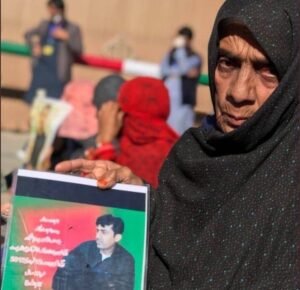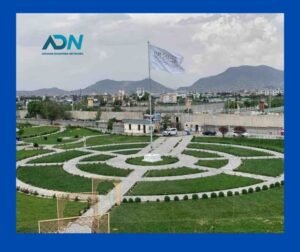Perpetual Financial Crisis in Pakistan: Internal Reforms, Not Borrowing, is the Solution

Photo by @SS Ahmad for ADN
By Nasir Khattak
Pakistan finds itself in a vicious economic cycle, perpetually reliant on international bailouts to avoid default, yet never addressing the deep-rooted structural flaws that keep it in crisis. Despite repeated loans from the International Monetary Fund (IMF), World Bank, and bilateral partners, Pakistan’s economy remains precarious. The reasons are internal: a lack of effective governance, unchecked military control over economic resources, excessive government spending, and systemic fiscal mismanagement. Without sweeping reforms to address these issues, no amount of external borrowing will save Pakistan from financial collapse.
The country’s fiscal problems are glaring. Over 60% of government revenue is consumed by interest payments on public debt, leaving very little for development, social programs, or economic initiatives. External debt repayments alone amount to nearly $70 billion over the next five years, while the central bank’s foreign reserves hover at dangerously low levels—currently at less than $8 billion, barely enough to cover six weeks of imports. This is a direct consequence of years of unsustainable borrowing and misplaced priorities, where borrowed funds were used to sustain an import-driven, consumption-based economy rather than fostering productivity and exports.
Pakistan has approached the IMF 25 times since 1958, highlighting its chronic dependency on external financial support. The $7 billion IMF bailout in 2023, though critical to averting immediate default, is only a stopgap measure. Similar programs in the past have failed to create long-term stability because they focused on fiscal austerity without addressing underlying structural inefficiencies.
One major obstacle to economic reform is the disproportionate role of the military in Pakistan’s economy. The armed forces have entrenched themselves in the country’s economic framework, controlling significant portions of the budget while also operating vast business empires. Their influence extends into state-owned enterprises (SOEs) where retired military personnel frequently occupy leadership roles as CEOs or board members. Many of these SOEs are inefficient, running at losses and bleeding public resources, yet remain untouched due to the military’s powerful position.
The military’s heavy paycheck, exorbitant retirement packages, and unchecked economic privileges add unnecessary strain on an already fragile fiscal structure. Experts argue that curbing the military’s control over economic resources is essential for Pakistan to achieve fiscal discipline. Redirecting funds from military spending toward productive sectors like education, healthcare, and infrastructure would not only reduce the fiscal burden but also help lay the foundation for long-term growth.
Pakistan’s chronic inability to raise sufficient tax revenue exacerbates its economic crisis. At just 12% of GDP, Pakistan’s tax-to-GDP ratio is one of the lowest in the world. Only 1% of the population pays income tax, and vast sectors of the economy, including agriculture, retail, and real estate, remain untaxed. This systemic failure to generate revenue forces the government to rely heavily on borrowing to meet its expenses.
Experts point out that structural reforms in taxation are essential. Broadening the tax base, closing loopholes, and bringing untaxed sectors into the fiscal net can help generate sustainable revenues. However, such reforms require political will, which has been lacking for decades. The government’s reliance on political patronage and vested interests has prevented any meaningful action to address these gaps.
In addition to taxation issues, Pakistan’s inefficient state-owned enterprises are a significant drain on public finances. SOEs across the energy, transportation, and industrial sectors suffer from mismanagement, corruption, and overstaffing. They continue to absorb massive subsidies and loans while contributing little to economic productivity. Instead of reforming these institutions or privatizing loss-making entities, successive governments have allowed inefficiencies to persist, further straining the national budget.
Addressing the inefficiencies in SOEs requires a fundamental shift in governance. Removing politically appointed or unqualified leadership and ensuring transparent, merit-based management is critical. Moreover, reducing military influence in these organizations would open avenues for more professional management practices and greater accountability.
While the IMF programs provide short-term relief, they do not tackle the structural issues that keep Pakistan in a state of economic dependency. The IMF’s emphasis on raising taxes and removing subsidies often comes at a steep social cost, triggering inflation and unemployment. This fuels public discontent and political instability, further delaying reform efforts.
The austerity measures required under IMF programs have repeatedly failed to achieve their objectives because they are implemented without accompanying structural reforms. For example, while energy tariff hikes raise revenue, they do not address inefficiencies in the energy production and distribution system, which remains plagued by losses and circular debt.
Pakistan’s perpetual financial crisis is the result of internal structural failures, not external pressures. Relying on bailout packages without addressing these issues will only perpetuate the cycle of debt and instability. The solution to Pakistan’s financial crisis lies within its own borders. Reducing military influence over the economy, broadening the tax base, reforming state-owned enterprises, and prioritizing export-led growth are essential steps toward financial recovery. Without these reforms, Pakistan will remain trapped in its recurring economic crisis, no matter how many loans or aid packages it secures.
Nasir Khattak specializes in the China-Pakistan region, with a particular focus on the economic relations between the two countries.
Note: The contents of the article are of sole responsibility of the author. Afghan Diaspora Network will not be responsible for any inaccurate or incorrect statement in the articles.









